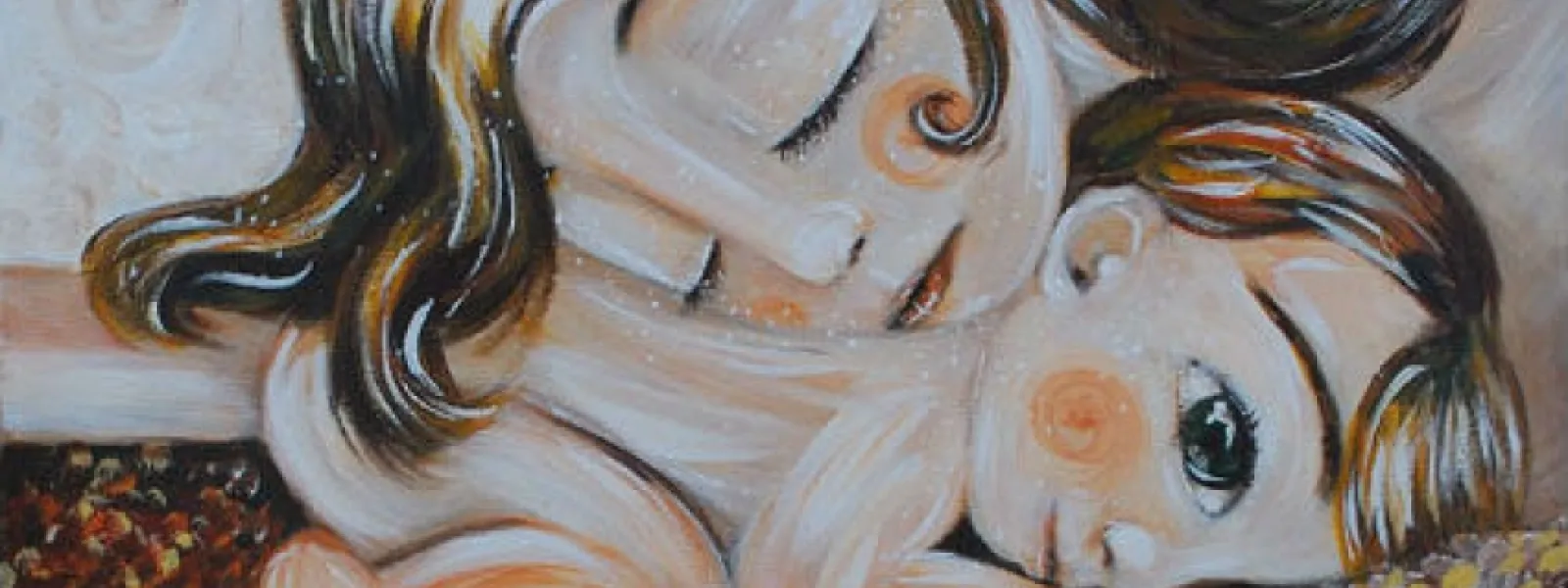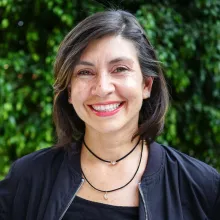
Love for my daughter and the planet
Image: Absorb, Katie M. Berggren / www.KmBerggren.comBefore I became a mother, I heard the question a thousand times: “Is it a good idea to bring more human beings into the world?” I often asked it myself.
Thinking logically, the most obvious answer is no. The news shows us that we live on an overpopulated planet—one with water shortages, species extinction, alarming pollution and environmental degradation. It seems to be getting ever worse.
That´s why, while being a mom is always difficult, being an environmentalist as well makes it even more so.
Being an environmentalist is like fighting a million-headed monster: when one problem is solved, another 10 pop up. It means learning daily of the perilous situation facing our planet: the threats, the battles lost, the people and species suffering. Faced with such news, it’s impossible to turn a blind eye. Ignorance can no longer be an excuse for our actions.
“What kind of world do you want to leave your children?”
This is the question I’m faced with now. Yet it seems almost obsolete. It’s more important to think about what kind of world we want our kids to live in right now.
To address this, parents like me are faced with an endless array of factors to consider before deciding something as simple as what to feed our children. It’s no longer enough that the food be balanced and nutritious. Now we must know if the food is pesticide-free, non-GMO, made with only natural ingredients… the list is endless.
In Mexico, where I live, few children have the privilege of playing in a river or forest, on a beach or mountainside, or simply in the greenery of a park. In addition to keeping them safe from violence and human trafficking, we must also prevent our children from being exposed to high levels of air pollution.
So if the world is so bad, why do we keep having children?
They say that frogs do not breed unless they know there will be rain because, without rain, they know their offspring will be in danger. In the animal world, countless species regulate their reproduction based on their close relationship with nature. If conditions are not conducive, they do not reproduce.
Are we human beings, then, the only species that reproduces at all costs, regardless of environmental threats?
Humans are different from other species because of our awareness, and our ability to see beyond basic survival to things like art, love, empathy, and the search for meaning.
Helping to make a difference is what brings meaning to my life. As part of the AIDA team, I work alongside professionals who dedicate their lives to saving rivers, defending human rights, protecting forests, supporting environmental defenders, empowering vulnerable communities, and giving a voice to the voiceless.
It’s true that the news bombards us daily with worrisome stories about our planet. But it’s what the news rarely reports that shapes my vision of the future.
Every day, I see a growing number of people who are prepared, engaged, and working to build a better world. They are mothers, fathers, children, students, teachers, professionals, and volunteers; they come from every imaginable country and culture; and they are willing to do whatever is necessary to help others.

Above all, I see a critical mass of people that believe we can. We can change course, generate alternative energies, lessen our footprint; we can rectify wrongdoings, empower the vulnerable, combat xenophobia and greed; we can spend our money more wisely, and find more democratic ways of doing business.
I have the privilege of working alongside a diverse group of people who have committed to fighting the good fight, and who won’t let go of the divine connection to the land that has given us life.
These are the people who make me think that having children today is not only feasible, but also desirable. Because we can instill our children with generosity, compassion and respect—not just for themselves and the people around them, but also for the trees, the rivers, the animals, and all living things.
Still, I often wonder whether we’ll ever get it right. I wonder if my five-year-old daughter will become an adult in a world where fresh water and clean air are seen as basic human rights; or if they will be commodities within reach of only the privileged few.
Though I’ve never questioned whether or not my decision to have my daughter was the right one, I do still return to the question of whether or not the world needs more people.
And then I look at my daughter’s shining eyes, at her gentle hands, at her dancing legs, at her infectious smile and her tireless curiosity. In her soft embrace, I feel her generosity, her compassion, and her boundless hope.
Her laughter is so deep it could wake the flowers in spring; her spirit so generous it can shine love out on all living things; and her potential so huge she just may be the one to help push our planet towards a brighter future.
There is no answer, then, but YES.
For my daughter, and all children who carry within the potential for a better world, we will continue working to defend our beautiful planet. Join us!
Aída Navarro Barnetche

Aída Navarro is based in Ensenada, Mexico and is AIDA's human resources advisor. A native of Mexico, she has extensive experience coordinating conservation projects in the Baja California Peninsula, including international outreach and media campaigns to promote marine conservation since 2002. Aída holds and MSc in Environment and Development from the University of East Anglia and a B. A. in International Trade from the Instituto Tecnológico y de Estudios Superiores de Monterrey.
